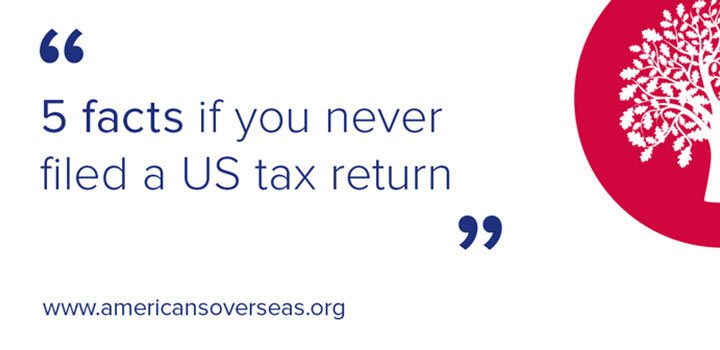
Residence-based taxation

Americans Overseas member of launched Residence-Based Taxation Coalition.
Citizenship-based taxation (CBT)
The United States taxes on the basis of citizenship. This is referred to as citizenship-based taxation (CBT). CBT means that the United States taxes its citizens on their worldwide income regardless of where they live and earn their income.
Residence-based taxation (RBT)
Residence-based taxation (RBT) taxes individuals based on where income is earned. By adopting residence-based taxation, US citizens living overseas who earn income outside of the United States or income unrelated to economic activity in the United States would no longer be taxed on that income by the United States.
Citizenship-based taxation is incompatible with the global economy of the 21st century where the tax policy of all other industrialized nations is based on residency and not nationality.
The Coalition
The Coalition will work individually and collectively to bring focus to RBT and to provide knowledge and research to advance residence-based taxation (RBT) in Washington, DC, with Congress, the media, and the general public.
Our Mission
To enact residence-based taxation (RBT) for Americans living and working overseas.
- Creating Congressional focus: Draw focus on the need for tax reform for Americans living and working overseas.
- Helping policymakers and the public: Present widely-accepted arguments, research, and documentation in favor of Residence-based taxation (RBT).
- Navigating the process: Make available to the US government, media, and the public information and data supporting residence-based taxation (RBT).
Questions
[divider line_type=”undefined” custom_height=””]
- How feasible is this?
- What does this mean for me as an American overseas?
- Do I still have to file my declaration?
- Do you really think you can change these old regulations?
Many of these questions are asked of our team at the moment. Let us be clear. The members of the coalition, including American Overseas, have united because together we believe we can bring change.
CBT is incompatible with the global economy as mentioned. At the same time, we think this change will take some time and effort. And when it comes, we expect that the RBT will only be implemented for people who are already compliant with US tax laws. It is unlikely that citizens who are not compliant are exempt.
By focusing and bringing our goals to Washington together, but also individually, we are working on a sustainable solution for Americans Overseas.
Website and updates
Check https://www.rbtcoalition.org for more information about the Residence-Based Taxation Coalition.
About Americans Overseas
We, the founders of Americans Overseas, were born in the Netherlands and obtained our American nationality through our (American) mother.
When we heard about the US tax system for the first time around 2013, we were in total disbelief (it can’t be true!), anger (how can they do this?), fear (am I going to get fined or pick up other problems?), and panic (what should I do?). It is (unfortunately) true that there is an additional American tax levy. But there’s no information from the local government, and when approached, the consulate referred us to the IRS, and the IRS was impenetrable.
That’s why we started this initiative to help people from all over the world by providing proper information about the US tax system to avoid unnecessary panic, and offering help free of obligation and free of charge. If needed, we have a network of affordable professionals (accountants) who can help you with your tax obligations.
Frequently asked questions
Understanding the US tax system, the obligations, and all the additional terms can be difficult. Especially if one lives outside of America. Is your question not answered? Contact us.
-
Who is required to file taxes in the US?
U.S. citizens and resident aliens who live abroad are generally required to file a federal income tax return and pay taxes on their worldwide income.
Read more... about Who is required to file taxes in the US? -
Do US citizens living abroad still have to file taxes in the US?
Yes, US citizens are required to file taxes on their worldwide income, regardless of where they are living.
Read more... about Do US citizens living abroad still have to file taxes in the US? -
How can I cash my US check?
Received an American check? You can cash your check in the following ways: cash the check at your own bank, transfer to another person (endorsement), cash checks using an online service or cash the check by another bank.
Read more... about How can I cash my US check? -
Are there any special tax forms required for US citizens living abroad?
US citizens living abroad may be required to file Form 2555 and/or Form 1116 to claim the foreign-earned income exclusion.
Read more... about Are there any special tax forms required for US citizens living abroad? -
What is FBAR filing?
FBAR (Foreign Bank Account Report) filing is the requirement for certain U.S. individuals and entities to report their foreign financial accounts to the Financial Crimes Enforcement Network (FinCEN) of the U.S. Department of Treasury. The FBAR filing requirement applies to U.S. persons who have a financial interest in, or signature authority over, one or more foreign financial accounts if the aggregate value of those accounts exceeds $10,000 at any time during the calendar year.
Read more... about What is FBAR filing?





